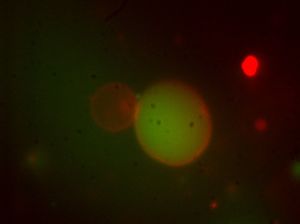
New Max Planck Center for Particle Physics, Cosmology and Geometry
A Rosetta Stone for understanding the Universe at all scales

Quantum entanglement: do elementary particles have telepathic abilities?
Café & Kosmos on July 30, 2025

Antimatter mystery in the universe: Will the neutrino lead us on the right track?
Café & Kosmos on 8 April 2025



![[Translate to English:] #33956 Left: The MAGIC telescopes on the island of La Palma. Right: Data from the eruption of the active galactic nucleus (AGN) Markarian 421, measured with MAGIC (gamma rays) and IXPE (X-rays) in December 2023 (Photo: Urs Leutenegger, Data: Axel Arbet-Engels)](/fileadmin/_processed_/f/6/csm_plot_pr_ebb05fd048.jpg)


